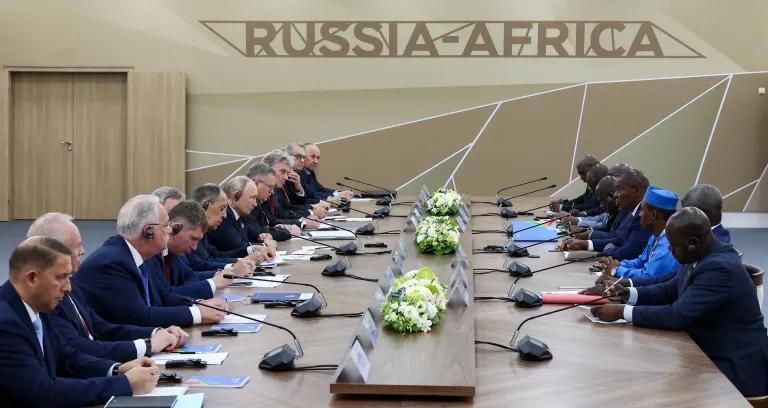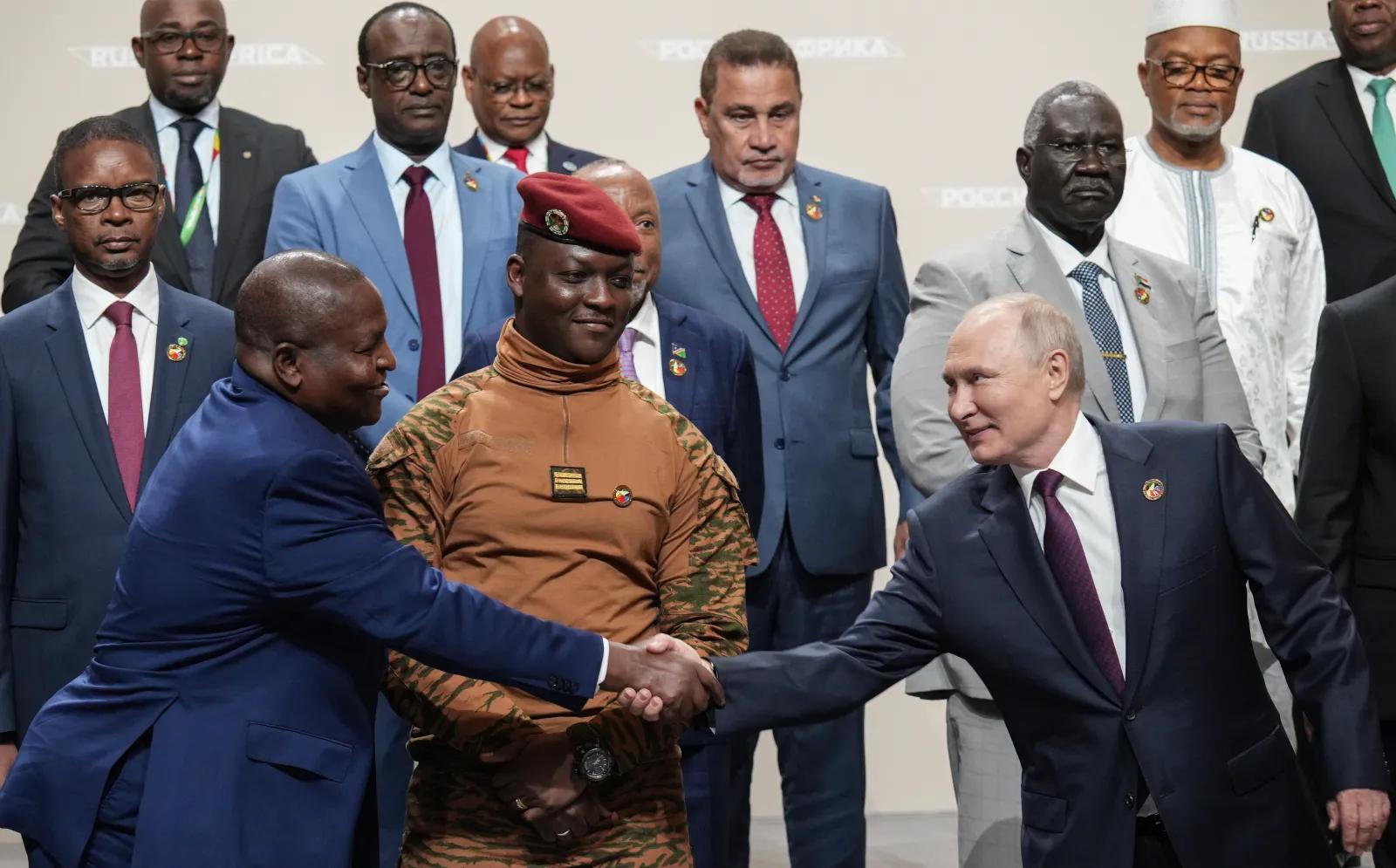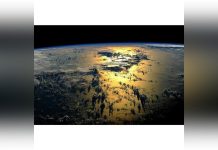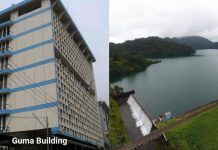Peter Fabricius
Africa-Press – Sierra-Leone. The joint Russia-Africa Summit declaration is littered with Kremlin talking points.
The 74-paragraph Declaration of the Second Russia-Africa Summit, held in St Petersburg last week, looks like it was almost entirely written by the Kremlin, with one or two paragraphs of African interest sprinkled on top.
It is tantamount to an implicit African endorsement of Russia’s justification for its war against Ukraine. Perhaps that is why only 17 African heads of state attended the summit. The others might have guessed what was coming.
The declaration is full of statements implicitly harnessing Africa in support of Moscow’s posture in its war and against Western sanctions imposed on it for attacking its neighbour. Diatribes against “neo-colonialism”, “neo-Nazism”, “neo-fascism”, “Russophobia” and other familiar rhetorical Russian postures are littered throughout.
Unsurprisingly perhaps, Ukraine, though implicitly present everywhere, is not explicitly mentioned once in the document of 4,000-plus words. Nor does it, therefore, offer any suggestions on how to end the war.
Russia has been widely blamed for sharp increases in food prices and food insecurity because of its war on Ukraine, a major international grain supplier — including Moscow’s bombardment of granaries and its blockade of Ukraine’s seaports, which has prevented Kyiv from exporting grain.
Two weeks ago, Russian President Vladimir Putin pulled out of the Black Sea Grain Initiative (BSGI), which had lifted the Russian blockade in July 2022 to allow Ukraine to export grain.
At the St Petersburg summit itself, President Cyril Ramaphosa and the six other countries which are leading an African peace initiative to Russia and Ukraine explicitly urged Putin to reinstate the BSGI. He implicitly rejected their plea in a later private meeting, insisting that his previous conditions would have to be met before reinstating the deal.
But the joint declaration makes no mention of the Black Sea Grain Initiative or Russia’s blockade of Ukrainian ports. Instead, it implicitly blames the food shortages and insecurity — which are being felt most acutely in Africa — entirely on Western sanctions, stating that Russia and Africa should, “strengthen cooperation in countering unlawful unilateral restrictive measures placing African countries at risk of food and energy shortages”.

Moscow’s familiar narrative
The joint declaration heavily underscores Moscow’s familiar narrative that Russia supported Africa to liberate itself from Western colonialism, a narrative which is key to its outreach to the continent.
The declaration says Russia and Africa should cooperate in “completing the decolonisation process in Africa”, and should “work together to counter manifestations of neo-colonial policies that aim to undermine the sovereignty of States, deprive them of the freedom to make their own decisions, and plunder their natural resources”.
And the declaration adds that Russia and Africa should work together in “overcoming the consequences of colonialism, slavery, the slave trade, including the trans-Atlantic slave trade…”
The declaration does not mention that it was the Soviet Union and not Russia which supported Africa’s liberation struggle and that Ukraine was then part of the Soviet Union.
And the declaration echoes one of Putin’s justifications for invading Ukraine — that he was trying to counter the supposed “neo-Nazism” of President Volodymyr Zelensky’s government. The declaration says Russia and Africa should step up efforts “to combat contemporary forms of racism and racial discrimination … neo-Nazism and neo-fascism…”
Russia has been widely condemned for violating the United Nations Charter by its invasion of Ukraine. Ramaphosa repeated at the summit the call by the members of the African peace mission for the UN Charter to be respected.
Such calls generally refer to Article 2.4 of the Charter, which states: “All Members shall refrain in their international relations from the threat or use of force against the territorial integrity or political independence of any state….”
However, the joint declaration of the summit, while also urging respect for the UN Charter, underscores not only Article 2 but also Article 51, which enshrines “the inherent right of individual or collective self-defence if an armed attack occurs against a Member of the United Nations…”
This suggests that the African nations participating in the Russia-Africa Summit have now implicitly endorsed Putin’s argument that Russia acted in self-defence in invading Ukraine because Ukraine had allegedly attacked pro-Russian parts of eastern Ukraine. Such attacks have not been verified.
The declaration is most explicit in backing Russia’s narrative in its confrontation with the West over Ukraine when it states that Russia and Africa should: “Oppose the application of illegitimate unilateral restrictive measures, including secondary ones, as well as the practice of freezing sovereign foreign exchange reserves.”
It says they should, “Reaffirm the unacceptability of using political blackmail to bring leaders of third countries to implement such measures or influence the political and economic policies of States.”
And the declaration says Russia and Africa should oppose efforts to introduce “political or economic restrictive measures under the pretext of human rights advocacy, oppose attempts by certain States to use unfounded accusations of human rights violations as an excuse for interfering in internal affairs…”
The two sides also agree to: “Jointly oppose the politicization of sports within international organizations and advocate a guaranteed free access for athletes and sports organizations to international sports activities.”
Paragraph 57 of the declaration emphasises the importance of enhancing energy security, including by “ensuring the protection of critical energy infrastructure and condemning terrorist attacks against any critical infrastructure, including energy infrastructure”.
This seems, to say the least, ironic, given that Russia consistently bombed Ukraine’s power stations and electrical infrastructure throughout the past winter in an apparent attempt to freeze the country into submission.
source:dailymaverick.co.za
For More News And Analysis About Sierra-Leone Follow Africa-Press






